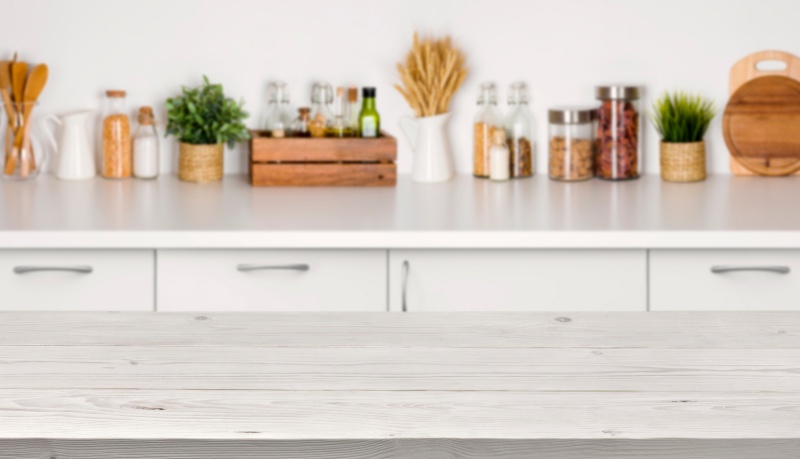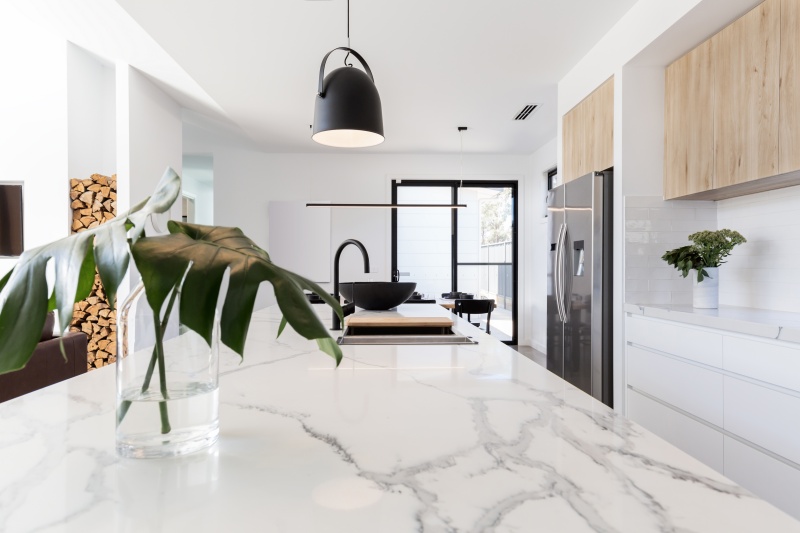Whether you’re building a new kitchen or redoing the current one, one of the most significant decisions you must make is selecting the kitchen benchtop. As some people claim, your kitchen benchtop is the most hardworking surface you’ll ever have. It provides enough space to organize your kitchen equipment and perform kitchen-related tasks. It also serves as your holding area for all your finished or cooked products. The benchtop can also be the perfect spot for your family or guests to gather around while eating or cooking. (1)
Additionally, your kitchen benchtop boosts the appearance and adds an aesthetic factor to your kitchen. With all these functions and benefits, there’s no doubt that choosing the perfect benchtop material won’t be easy. There are various benchtop materials available on the market, with each of them giving a different look, design, and quality. Today, you may find these materials available. Examples are natural or engineered stone benchtops, concrete, stainless steel, hardwood, and laminate. (2)
Aside from choosing based on aesthetics, you need to ensure that it’s long-lasting, heat-and-stain-resistant, and has doable and manageable cleaning and maintenance requirements. So, to ease the buying decision, here are some insightful hints to help you choose the perfect kitchen benchtop material.
Set your budget range
With plenty of kitchen benchtop materials available, it may be best to set your budget first. Doing this will help narrow down your options and help you focus on choosing from materials you can afford. This will also prevent you from going for benchtop materials that are way out of your budget, which could lead you to debt. Furthermore, keep in mind that the price tag of each material will reflect the durability, versatility, and overall quality of the material. This means that the higher the material’s cost, the better the quality.
Consider your usual kitchen activities or preparation style
Now that you have the budget and have narrowed down your material options, you’ll need to analyze and consider your usual kitchen activities and preparation style. Remember that each material may differ in terms of quality, functionality, and durability. Thus, you need to ensure that these aspects will match your usual kitchen routine.
For example, if you often put off the cleaning task after meal preparations, marble and limestone benchtops may not be for you as these materials are porous and can easily stain. You may prefer granite or stainless steel due to their easy-to-clean surfaces, durability, and resistance to chipping, scratching, and staining. (2)
Furthermore, you also need to consider the material’s impact resistance and weight-bearing capacity, especially if you’re planning to use your benchtop as a holding space for heavy and bulky kitchen equipment. For this function, you may go for concrete, granite, and engineered stone benchtops. (2)

Decide the best size and shape suitable for your kitchen
Kitchen benchtop materials come in different sizes and thicknesses, each tailored to cater to different needs. For example, if you’re planning your benchtop to be placed against a wall, a smaller dimension may be suitable so you can still easily reach across the other sides for cleaning. Meanwhile, if the benchtop is fitted in the center or used as an island benchtop, you may opt for wider and bigger dimensions.
You must also consider the size and wideness of your kitchen to ensure that you still have enough room to move around the benchtop. Furthermore, to avoid crowding, make sure that the length of the benchtop is enough for the number of people who’ll likely use the kitchen at the same time.
Inquire about the cleaning and maintenance requirement
Like other things, your kitchen benchtop can only last longer and function at its best when cleaned and maintained properly. Each type of material may require different cleaning or maintenance, so ask an expert about this. For example, natural stone such as granite and marble may need extra care and careful cleaning method as they’re more vulnerable than others. (2)
If you want something similar to natural stone but with easier maintenance, you may opt for engineered stone. Aside from being budget-friendly, it’s also scratch and stain-resistant, easy to clean, and low-maintenance. (3)
Consider the aesthetic look of the overall kitchen
Once you’ve considered all the factors above, it’s time to pick your benchtop based on style or design. Since your benchtop can significantly impact the overall aesthetic of your kitchen, it’s ideal to select the material that will complement your home’s current design or vibe. For instance, stainless steel may fit best to achieve a contemporary, edgy, and sophisticated kitchen aesthetic. For a more rustic feel, timber benchtops may be suitable. Additionally, you must also consider the colors of the materials and pick the one that will match the rest of your kitchen.
Key takeaway
Your chosen benchtop can significantly impact your kitchen’s overall design and aesthetic. Thus, ensure to take these tips into consideration when selecting the material for your kitchen benchtop. Ideally, you can also consult an expert to help you choose the perfect benchtop material that will complement your home’s current style and get the best value for your money.
References:
- “Importance Of Kitchen Benchtops”, Source: http://cablesupport.net/importance-of-kitchen-benchtops/
- “Best Types Of Kitchen Countertops”, Source: https://www.forbes.com/advisor/home-improvement/types-of-kitchen-countertops/
- “7 Low-Maintenance Countertops for Your Dream Kitchen”, Source: https://www.houzz.com/magazine/7-low-maintenance-countertops-for-your-dream-kitchen-stsetivw-vs~27854353



